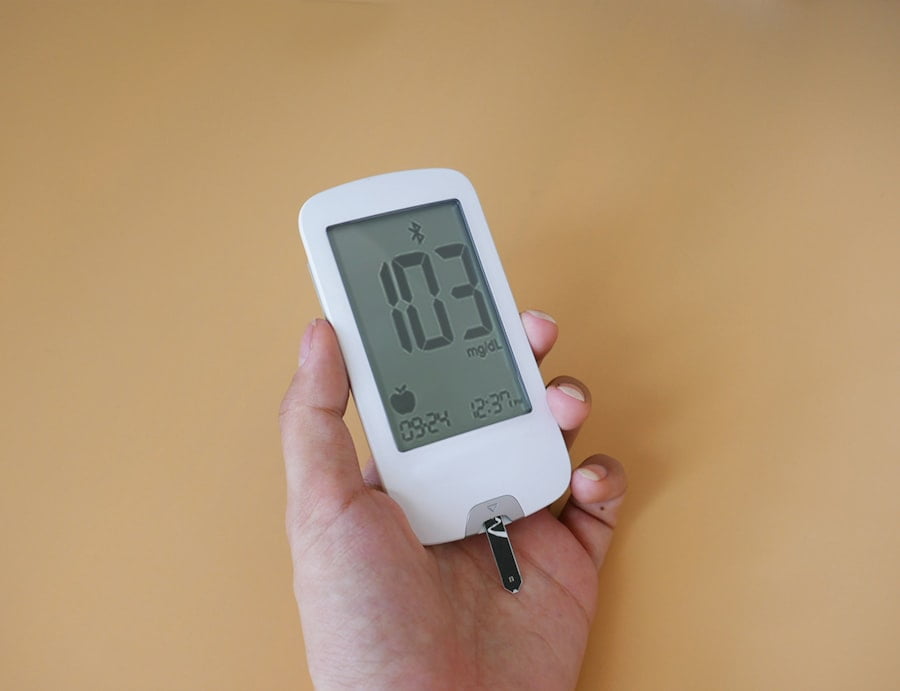
Managing Diabetes: Top Healthy Habits to Keep Your Blood Sugar in Check
Diabetes is a chronic condition that affects millions of people worldwide. It occurs when the body is unable to properly regulate blood sugar levels, leading to high levels of glucose in the blood. There are two main types of diabetes: type 1 and type 2. Type 1 diabetes is an autoimmune disease where the body’s immune system mistakenly attacks and destroys the insulin-producing cells in the pancreas. Type 2 diabetes, on the other hand, is a metabolic disorder characterized by insulin resistance, where the body’s cells do not respond properly to insulin.
The prevalence of diabetes has been steadily increasing over the years, with an estimated 463 million adults worldwide living with diabetes in 2019. This number is expected to rise to 700 million by 2045 if current trends continue. Diabetes can have a significant impact on overall health if not properly managed. It can lead to a range of complications, including heart disease, stroke, kidney disease, nerve damage, and vision problems.
Key Takeaways
- Diabetes can have a significant impact on overall health and well-being.
- Regular exercise and physical activity can help manage diabetes and improve overall health.
- A balanced and nutritious diet is essential for managing diabetes and maintaining good health.
- Adequate sleep and stress management are important for managing diabetes and reducing the risk of complications.
- Regular blood sugar monitoring, medication adherence, and proper insulin injection techniques are crucial for managing diabetes effectively.
Healthy Habit #1: Regular Exercise and Physical Activity
Regular exercise and physical activity play a crucial role in managing diabetes. Exercise helps to lower blood sugar levels by increasing insulin sensitivity, allowing the body’s cells to better utilize glucose for energy. It also helps to improve cardiovascular health, reduce blood pressure, and control weight.
There are various types of exercises suitable for people with diabetes. Aerobic exercises such as walking, jogging, swimming, and cycling are excellent choices as they help to improve cardiovascular fitness and burn calories. Strength training exercises using weights or resistance bands can help build muscle mass and improve overall strength. Flexibility exercises such as yoga or stretching can help improve joint mobility and reduce the risk of injury.
Incorporating physical activity into your daily routine can be as simple as taking the stairs instead of the elevator, parking further away from your destination and walking, or going for a short walk after meals. Aim for at least 150 minutes of moderate-intensity aerobic activity per week, spread out over several days. It’s important to consult with your healthcare provider before starting any new exercise program, especially if you have any underlying health conditions.
Healthy Habit #2: Balanced and Nutritious Diet
A healthy diet is essential for managing diabetes and maintaining overall health. It’s important to focus on consuming a balanced and nutritious diet that includes a variety of foods from all food groups. This includes fruits, vegetables, whole grains, lean proteins, and healthy fats.
When it comes to managing diabetes, it’s important to pay attention to the types of carbohydrates consumed. Carbohydrates have the most significant impact on blood sugar levels, so it’s important to choose carbohydrates that are high in fiber and have a low glycemic index. High-fiber foods such as whole grains, legumes, fruits, and vegetables help to slow down the absorption of glucose into the bloodstream, preventing spikes in blood sugar levels.
It’s also important to limit the consumption of sugary beverages, processed foods, and foods high in saturated and trans fats. These foods can lead to weight gain, increase the risk of heart disease, and negatively impact blood sugar control.
Meal planning and portion control are essential for managing diabetes. It’s helpful to work with a registered dietitian or diabetes educator to develop a meal plan that suits your individual needs and preferences. They can provide guidance on portion sizes, carbohydrate counting, and meal timing.
Healthy Habit #3: Adequate Sleep and Stress Management
| Healthy Habit #3: Adequate Sleep and Stress Management | |
|---|---|
| Recommended hours of sleep per night | 7-9 hours |
| Percentage of adults who report insufficient sleep | 35% |
| Percentage of adults who report high levels of stress | 33% |
| Recommended stress management techniques | Meditation, deep breathing, exercise, time management |
| Benefits of adequate sleep and stress management | Improved mood, better cognitive function, reduced risk of chronic diseases |
Sleep and stress play a significant role in diabetes management. Lack of sleep can affect blood sugar control by disrupting hormone levels that regulate glucose metabolism. Chronic sleep deprivation has been linked to an increased risk of developing type 2 diabetes.
Stress can also have a negative impact on blood sugar levels. When stressed, the body releases stress hormones such as cortisol, which can cause blood sugar levels to rise. Chronic stress can also lead to emotional eating and poor food choices, further exacerbating blood sugar control.
To improve sleep quality, it’s important to establish a regular sleep routine and create a sleep-friendly environment. This includes going to bed and waking up at the same time each day, avoiding stimulating activities before bed, and creating a dark, quiet, and comfortable sleep environment.
Managing stress is also crucial for diabetes management. Engaging in stress-reducing activities such as meditation, deep breathing exercises, yoga, or engaging in hobbies can help reduce stress levels. It’s also important to prioritize self-care and make time for activities that bring joy and relaxation.
Healthy Habit #4: Regular Blood Sugar Monitoring
Regular blood sugar monitoring is essential for managing diabetes effectively. Monitoring blood sugar levels allows you to understand how different foods, activities, medications, and stress levels affect your blood sugar control. It helps you make informed decisions about your diet, exercise routine, and medication management.
There are various methods for monitoring blood sugar levels, including fingerstick testing using a glucose meter or continuous glucose monitoring (CGM) systems. Fingerstick testing involves pricking the finger with a lancet to obtain a small drop of blood, which is then placed on a test strip and inserted into a glucose meter for measurement. CGM systems use a small sensor inserted under the skin to continuously monitor glucose levels throughout the day.
It’s important to work with your healthcare provider to determine the frequency of blood sugar monitoring that is appropriate for you. They can provide guidance on target blood sugar ranges and help you interpret the results.
If you notice consistently high or low blood sugar levels, it’s important to take appropriate action. This may involve adjusting your medication dosage, making changes to your diet or exercise routine, or seeking medical advice if necessary.
Healthy Habit #5: Medication Adherence and Proper Insulin Injection Techniques

For individuals with diabetes who require medication, adherence to prescribed medications is crucial for effective blood sugar control. Medications such as oral antidiabetic drugs or insulin help to regulate blood sugar levels and prevent complications associated with diabetes.
It’s important to take medications as prescribed by your healthcare provider and follow the recommended dosage and timing. Skipping doses or taking medications inconsistently can lead to uncontrolled blood sugar levels and increase the risk of complications.
For individuals who require insulin injections, proper injection techniques are essential for optimal insulin absorption and blood sugar control. It’s important to rotate injection sites to prevent the development of lipohypertrophy (thickened fatty tissue) and ensure consistent insulin absorption. It’s also important to use the correct needle length and gauge, as recommended by your healthcare provider.
Common mistakes to avoid when taking medication include forgetting to take medications, taking incorrect dosages, or not properly storing medications. It’s important to establish a routine for taking medications and store them in a cool, dry place away from direct sunlight.
Healthy Habit #6: Quitting Smoking and Limiting Alcohol Consumption
Smoking and excessive alcohol consumption can have a detrimental impact on diabetes management. Smoking increases the risk of developing type 2 diabetes and can worsen existing diabetes by increasing insulin resistance. It also increases the risk of cardiovascular disease, which is already elevated in individuals with diabetes.
Alcohol, when consumed in moderation, may not have a significant impact on blood sugar control. However, excessive alcohol consumption can lead to high blood sugar levels, especially if mixed with sugary mixers or consumed on an empty stomach. Alcohol can also interfere with the liver’s ability to regulate blood sugar levels.
Quitting smoking and limiting alcohol consumption are important steps in managing diabetes effectively. If you need support in quitting smoking or reducing alcohol consumption, it’s important to seek help from healthcare professionals or support groups.
Healthy Habit #7: Maintaining a Healthy Weight and Body Mass Index (BMI)
Maintaining a healthy weight and body mass index (BMI) is crucial for diabetes management. Excess weight, especially around the abdomen, increases the risk of developing type 2 diabetes and can worsen existing diabetes by increasing insulin resistance.
Losing weight, even a small amount, can have significant benefits for blood sugar control and overall health. It can improve insulin sensitivity, lower blood pressure, reduce cholesterol levels, and decrease the risk of cardiovascular disease.
To achieve and maintain a healthy weight, it’s important to focus on a combination of healthy eating and regular physical activity. A registered dietitian or healthcare provider can provide guidance on appropriate calorie intake and help develop a personalized weight loss plan.
Healthy Habit #8: Regular Eye and Foot Exams
Regular eye and foot exams are essential for individuals with diabetes to prevent complications associated with the disease. Diabetes can lead to eye problems such as diabetic retinopathy, cataracts, and glaucoma. Regular eye exams can help detect these conditions early and prevent vision loss.
Diabetes can also cause nerve damage in the feet, known as peripheral neuropathy. This can lead to loss of sensation, foot ulcers, and infections. Regular foot exams can help detect any abnormalities or signs of infection early and prevent serious complications.
During an eye exam, the eye care professional will dilate your pupils to examine the retina and check for any signs of damage or abnormalities. They may also perform other tests such as visual acuity tests or tonometry to measure eye pressure.
During a foot exam, the healthcare provider will check for any signs of nerve damage, such as loss of sensation or changes in skin color or temperature. They will also examine the feet for any cuts, sores, or infections.
It’s important to schedule regular eye and foot exams as recommended by your healthcare provider. They can provide guidance on the frequency of exams based on your individual needs and risk factors.
Achieving Optimal Diabetes Management through Healthy Habits
Incorporating healthy habits into your daily routine is essential for managing diabetes effectively and maintaining overall health. Regular exercise, a balanced and nutritious diet, adequate sleep, stress management, regular blood sugar monitoring, medication adherence, quitting smoking, limiting alcohol consumption, maintaining a healthy weight, and regular eye and foot exams are all important components of optimal diabetes management.
It’s important to remember that managing diabetes is a lifelong journey, and it’s normal to face challenges along the way. Seeking support and guidance from healthcare professionals, such as registered dietitians, diabetes educators, or endocrinologists, can be incredibly helpful in managing diabetes effectively.
By making these healthy habits a priority and working closely with your healthcare team, you can take control of your diabetes and live a full and healthy life. Remember that small changes can make a big difference, so start incorporating these habits into your daily routine today.
FAQs
What is diabetes?
Diabetes is a chronic disease that affects how your body processes blood sugar (glucose). There are two main types of diabetes: type 1 and type 2.
What are the risk factors for diabetes?
The risk factors for type 2 diabetes include being overweight or obese, having a family history of diabetes, being physically inactive, and having high blood pressure or high cholesterol.
What are some healthy habits for managing diabetes?
Healthy habits for managing diabetes include eating a balanced diet, exercising regularly, monitoring blood sugar levels, taking medication as prescribed, and managing stress.
What foods should people with diabetes avoid?
People with diabetes should avoid foods that are high in sugar, saturated and trans fats, and sodium. This includes sugary drinks, processed snacks, and fried foods.
What types of exercise are recommended for people with diabetes?
Both aerobic exercise and strength training are recommended for people with diabetes. Examples of aerobic exercise include walking, cycling, and swimming, while strength training can include weightlifting or resistance band exercises.
How often should people with diabetes check their blood sugar levels?
The frequency of blood sugar monitoring can vary depending on the individual’s treatment plan and the severity of their diabetes. However, it is generally recommended to check blood sugar levels at least once a day, and more frequently if necessary.
Can diabetes be cured?
There is currently no cure for diabetes, but it can be managed through healthy lifestyle habits and medication. It is important for individuals with diabetes to work closely with their healthcare team to develop a personalized treatment plan.













